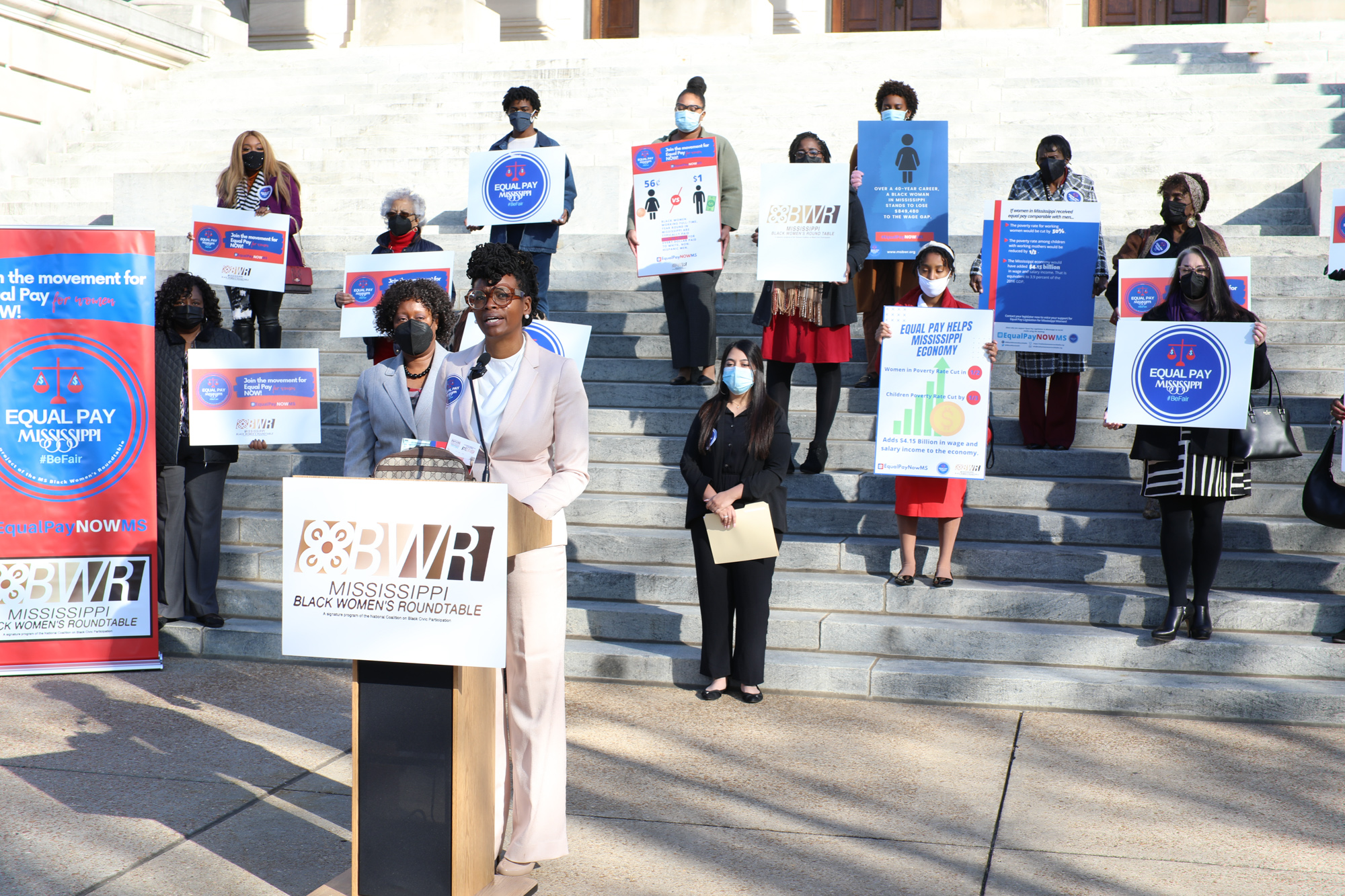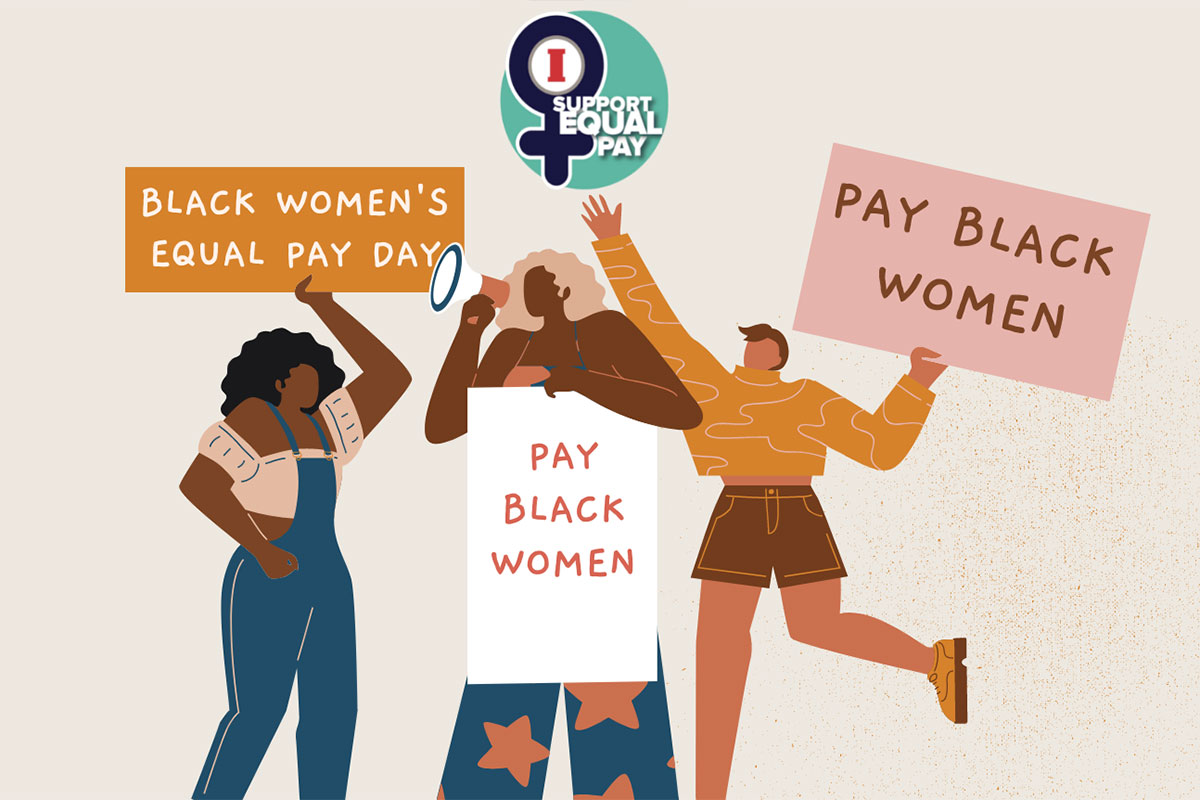Being last is nothing new to Mississippi, but when has that stopped us from moving forward? Mississippi is also notorious for comebacks, and although we have many hurdles to overcome, the Mississippi Black Women’s Roundtable will not stop helping the community get the resources needed to continue to make the state a better place for Black women and girls.
This year, Black Women’s Equal Pay Day falls between the 60th anniversary of the Equal Pay Act and the 60th anniversary of the March on Washington. Those milestones highlight efforts toward economic security for Black women and their families. Sixty years ago, the Kennedy administration recognized the need to acknowledge and work to eliminate gender-based disparities in compensation.
The Mississippi Equal Pay Law, enacted in 2022, seems genuine in its title, but with a thorough read, the truth is plain—the pay is still not equal. Black women, unfortunately, still have to fight for everything separately because being a woman and a Black woman is not the same, notably regarding salaries.

“In the Bones,” a Mississippi documentary, heavily features the Mississippi Black Women’s Roundtable as we help lead the charge to raise gender wage gap awareness on Black Women’s Equal Pay today. The film, streamed on iTunes and Amazon Prime, captures the disproportionate impact on Black women during a legislative session determining equal pay for equal work and abortion rights. Women still earn slightly more than 67 cents for every $1 men earn nationally.
Other states have enacted laws that require equal pay regardless of gender to bridge the gap. In comparison, some states have created laws banning companies from asking about salary history, which can lock women into lower-paying employment. The Mississippi law leaves its residents with fewer rights than before the 2022 change because it’s weaker than federal law. This bill expressly codifies law practices widely known to create gender pay gaps—like relying on an applicant’s salary history and employment gaps to negotiate salaries.
Women’s pay percentages display the vital need for stronger legislation in Mississippi to ensure gender equality in the workforce. Black women in the Magnolia State deserve an equal-pay law that will protect women from discriminatory pay practices.
The Mississippi Equal Pay law falls significantly short of the bar needed to support Black women. Even so, we must continue to advocate for gender equality in the workplace because if Black women in the state succeed, Mississippi succeeds.
This MFP Voices essay does not necessarily represent the views of the Mississippi Journalism and Education Group, the Mississippi Free Press, its staff or board members. To submit an opinion for the MFP Voices section, send up to 1,200 words and sources fact-checking the included information to azia@mississippifreepress.org. We welcome a wide variety of viewpoints.






